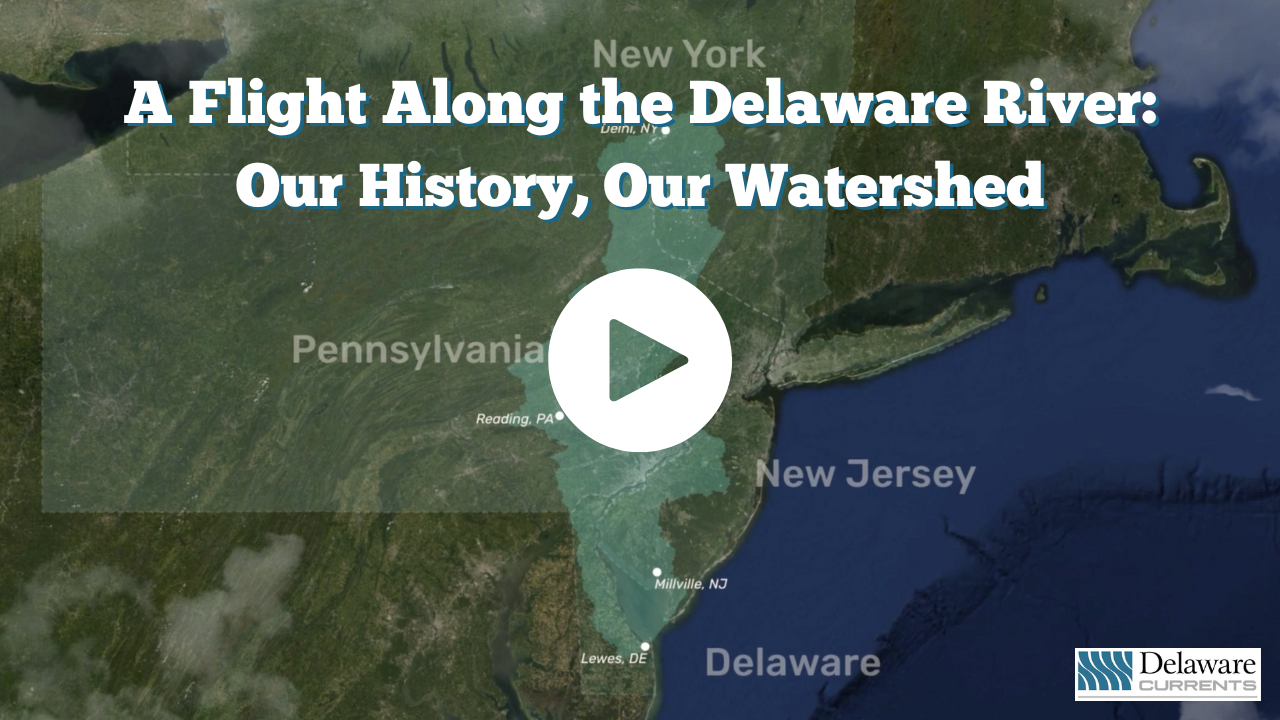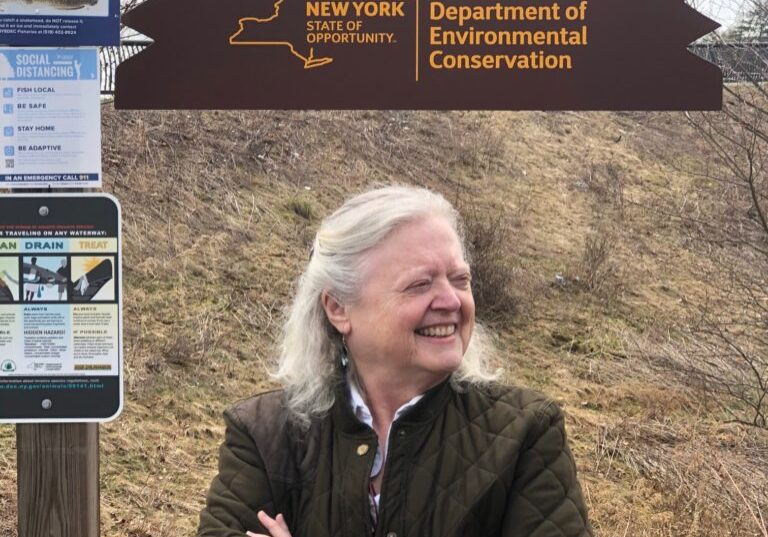
U.S. House passes bill blocking creation of Delaware River National Park
| July 26, 2024
A New Jersey congressman introduced an amendment to a federal spending bill passed by the U.S. House that he said would block a controversial plan to convert the Delaware Water Gap National Recreation Area into a national park.
However, supporters of the national park plan say that the amendment is a hollow gesture that has no practical effect.
The bill, known as the Department of the Interior, Environment and Related Agencies Appropriations Act for fiscal year 2025, was adopted by the House on Wednesday in a 210-205 vote.
The measure — branded by opponents as laden with multiple amendments harmful to the environment — faces an uncertain future as it still needs to pass in the Senate and gain President Biden’s signature.
Still, it sends the strongest legislative signal yet in opposition to a national park plan that has been slow to gain momentum.
What makes the amendment noteworthy is that a redesignation of the recreation area to a national park would take an act of Congress. The proposal would face a steep climb as at least three members of the local Congressional delegation are on record as being opposed to the plan.
Opposition rejoices
The plan to create a national park straddling the Delaware River in New Jersey and Pennsylvania created deep divisions ever since the idea was first floated in 2021.
The amendment to block the redesignation was introduced by Congressman Josh Gottheimer, whose district includes parts of the National Recreation Area. He said the amendment “reflects the conversations that I’ve had with local leaders and constituents for years.”
Two years ago, Gottheimer came out in opposition to the park plan, saying then that it lacked support to move forward.
The exact language of the amendment was not immediately available and his office did not respond to an email request for comment.
Sandy Hull, a founder of the Delaware Water Gap Defense Fund, which seeks to prevent a designation change of the Delaware Water Gap National Recreation Area to a national park, described herself as “thrilled, grateful for all the support and encouragement.”
Hull called the amendment “the beginning of the end for the national park push,” adding, “Personally, I am still a little in shock.”
Hull’s group, which goes under the No National Park banner, mobilized a petition and letter-writing campaign to get localities and elected leaders to oppose the plan.
“A grassroots movement, coming up against national environmental groups with HUGE funding and lobbying power,” Hull wrote in an email. “I always say we all have a voice and we have been heard.”
Yes, but, say environmental groups
Stephanie Wein, the clean water and conservation advocate for PennEnvironment, one of the backers of the park plan, pointed out a technical shortcoming that the bill does not address.
That is, the amendment prohibits the Park Service from redesignating the recreation area into a national park but the Park Service is not endowed with that authority in the first place. That power rests with Congress, she noted.
As such, the amendment really is more of a reflection of how Gottheimer feels about the redesignation, she said, adding that various amendments in the House version of the bill are not contained in the Senate version.
“This rider is not going to be a deciding factor in this debate,” added Doug O’Malley, director of Environment New Jersey, another backer of the national park plan.
Wein said that while the amendment is not a nail in the coffin of the park plan, it does signal the need to continue to educate the public and build support for it.
John Donahue, a former superintendent of the Delaware Water Gap National Recreation Area and a chief architect of the national park plan, could not be reached for comment.
More broadly, Wein called the appropriations bill an “attack on core American values” and a “travesty” because it was packed with measures harmful to the environment.
Environmental and conservation groups have rallied against the bill. Wein noted that the measure would roll back protections for the right whale, old growth forests and open spaces.
Read more: Effort to create Delaware River National Park grinds on
What is the national park proposal?
In its simplest terms, the proposal calls for the existing Delaware Water Gap National Recreation Area to be redesignated into the Delaware River National Park and Lenape Preserve.
An earlier plan called for the federal lands to triple in size to more than 200,000 acres by connecting existing state preserve lands in New Jersey and Pennsylvania and unifying them under federal management.
Under a revised plan, no state lands would be involved and the only expansion to the 70,000-acre footprint of the recreation area would come from property owners willing to sell, according to proponents.
Opponents have said that local infrastructure and fire and medical services would be strained and that the proposal lacked details about potential changes in fees and boundaries.
Read more: Plan pushed to make Delaware Water Gap Recreation Area a national park
Why pursue a national park in the first place?
Proponents offer an array of reasons.
“If I, as a Pennsylvanian, wanted to visit a national park, I would have to go Shenandoah or Acadia,” said Wein, referring to parks in Virginia and Maine.
She said the Delaware Water Gap National Recreation Area draws as many visitors as marquee national parks, such as Yosemite or Yellowstone, but with one-third of their budgets.
A national park would bring with it the highest levels of protection, confer bragging rights, induce local economic benefits and likely draw even more than the 4.3 million visitors the recreation area had in 2022, backers say.



![DC_Image [Image 4_Assunpink Meets Delaware] meets Delaware The Assunpink Creek on its its way to meet the Delaware River. The creek passes through woods, industrial and commercial areas and spots both sparkling and filled with litter.](https://delawarecurrents.org/wp-content/uploads/bb-plugin/cache/DC_Image-4_Assunpink-meets-Delaware-1024x768-landscape-14f069364113da5e8c145e04c9f2367c-.jpg)




Why does Doug O’Malley state that, and feel the need to, “continue to educate the public”? This implies he feels the opposition to be uneducated on environmental issues and the horrific ecological destruction that would come with the proposal to change the designation. It is arrogance. I’d debate you anytime, Doug. You know, because I’m uneducated on your grand plan.
I will gladly give Ms. Wein gas money to visit another national park. The environmental danger is the national park and preserve designation that calls for an app. 58,000 acre preserve open to Forest to Field Conversion.” More visitors also means more parking lots, more bathrooms and development to the infrastructure; more traffic, air and noise pollution. We have educated over 5,000 members on FaceBook, three Congressmen, several state and local officials. But yes, give us more reasons for this national park. I forgot!! PRESTIGE!!
The instant I see the DEI bullshit on your site, I immediately laugh at your objections – You’re just some kind of NIMBY, is all I can figure.
Thousands of people enjoy The Delaware Water Gap Recreation Area. It is free to spend a day enjoying its beauty. There are campsites, boat launches , and just about every animal imaginable doing well in The beauty of Nature . Don’t change a thing to this area. Its beauty is a result of not touching it at all .
The arguments against the NP are weak at best and fear-based at worst, but far from factual. Infrastructure is not a boogie man. It makes roads safer, public health accessible, and regulatory protections applicable. Environmental protections are intrinsic to the very definition of a national park and preserve. The fact is (as the http://ourpark.org website says) that less than 10K acres is proposed as national park designation, and the the remaining 60K or so acres would be marked as a preserve. Economic and population growth in the area is inevitable – protecting the park is essential.
People love to complain about how long it takes for things in the Recreation Area to be reopened and repaired, or about how they have to pay fees to use things. However, when it comes to proposals that would bring funding into the area, they reject those as well. Creating another national park would be an amazing benefit to the area. Projects for repairs and restoration would have access to more funding and it would be a net benefit to the area! Change can be intimidating, but that doesn’t mean it shouldn’t happen. Thank you for educating people!